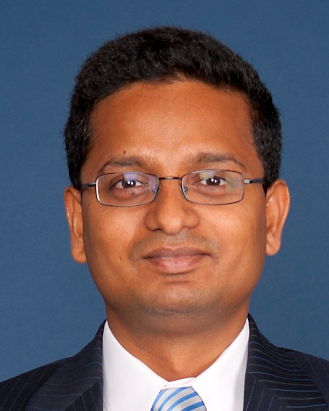
Vijay Kumar is Managing Director, Healthcare Services & Technology Research Team at Evercore ISI. Vijay Kumar is an analyst at Evercore ISI who is primarily focused on the medical supplies and devices and diagnostics subsector.
Dr. Kumar’s research expertise spans the diagnostic, medical equipment and medical supplies subgroups. Prior to joining Evercore ISI in 2012, Dr. Kumar spent three years at Deutsche Bank Securities as a research analyst on the health care services and technology research team.
Dr. Kumar began his career at Irevna Research Ltd. Dr. Kumar graduated from the Indian Institute of Management, Bangalore, and is also a Doctor of Medicine.
In this exclusive 3,172 word interview in the Wall Street Transcript, Dr. Kumar develops his thesis for some investment opportunities in the medical technology sector.
“Medtronic is probably the poster child of being undervalued right now. It has had some issues from a product-cycle perspective.
From a longer-time-horizon perspective, these are temporary hiccups. It has massive product cycles upcoming. An organic inflection for them is in about six to 12 months, so the stock is massively discounted.
Investors or the Street seems to not be giving them any credit for that inflection in top line. It is the poster child for a company that is on the cusp of an inflecting top line that has been driven mainly by innovation but which is not being priced into the stock right now.”
The diabetic and obese condition of many people are driving medical technology innovation for select companies:
“They have a flexible endoluminal system. You can insert the flexible robotic arm through the mouth. The hope is that maybe the arm is long enough so you can reach all the way to the stomach and conduct bariatric surgeries.
That eliminates the need for any sort of incisions on the abdomen. Those are companies that participate in the obesity market.”
Get the complete picture on this and many other top picks from Dr. Kumar by reading the complete 3,172 word interview, exclusively in the Wall Street Transcript.

Brian Marckx, CFA, is Director of Research and Senior MedTech Analyst at Zacks Investment Research. Prior to joining Zacks, Mr. Marckx worked as a high yield bond analyst on Wachovia Securities’ institutional trading desks where he specialized in the health care and industrials industries.
Prior to that, he was an analyst in corporate finance at First Union National Bank. Mr. Marckx has covered the medical device, pharmaceutical and biotechnology industries since joining Zacks in 2007.
Brian Marckx has been quoted in numerous publications, including The Wall Street Journal, Barron’s, Bloomberg Businessweek and Kiplinger. His work has also been cited in various market studies and working papers, including those from Massachusetts Institute of Technology, Deloitte & Touche and Pharmaceutical Manufacturing.
In this 3,814 word interview, exclusively in the Wall Street Transcript, Mr. Marckx reveals how the medical technology sector is reacting to recent economic developments.
“…Reimbursement is probably the biggest determination on whether a novel device is going to be successful right off the bat.
You may have FDA approval for a device or a diagnostic, but if the insurance companies don’t pay for it, then it is an uphill battle. That is probably the biggest challenge.
Even if medical technology is considered novel, and typically there is already something out there that addresses the same disease or condition, then it still comes down to reimbursement for a lot of the companies that I cover.
There is a lot of work put into clinical studies. Investors focus on if the pivotal study is positive.
The belief is that the device is going to ultimately be a commercial success, but when there is not reimbursement in place, it is almost always an uphill battle to get the adoption curve at a point where the company can be self-sustainable.”
See the stocks that Mr. Marckx identifies as the best of the best meeting this hurdle in this exclusive 3,814 word interview, only in the Wall Street Transcript.
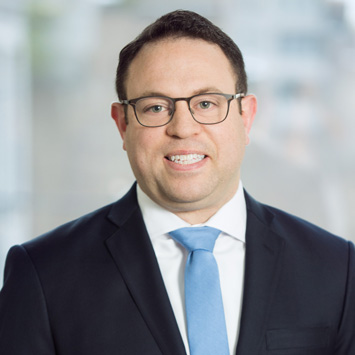 qui
qui
Ryan Zimmerman is Director and Medical Technology Analyst of BTIG. Mr. Zimmerman provides coverage across the medical technology sector, focusing primarily on orthopedic and surgical companies.
Prior to BTIG, Mr. Zimmerman was a senior associate at Canaccord Genuity, providing medical technology coverage with an emphasis on musculoskeletal companies.
Previously, he was the Director of Surgery at Advocate Christ Medical Center, where he oversaw operations for a Level 1 trauma hospital in the Chicago area. Mr. Zimmerman also held hospital management roles at Presence Health and was a fellow in hospital management at the University of Pennsylvania Health System.
He is board certified in hospital management and is a fellow in the American College of Healthcare Executives.
In this 3,174 word interview, exclusively in the Wall Street Transcript, Mr. Zimmerman details his investment coverage and reveals his top picks for investors now:
“…You are seeing broad development of robotics, not just in general surgery with companies like Intuitive Surgical (NASDAQ:ISRG), but you are seeing it in musculoskeletal care with Stryker’s Mako robot as well as Globus’ (NYSE:GMED) ExcelsiusGPS robot.
These are trends or products on the forefront of clinical paradigm shifts in terms of the way we treat these cases.
We are also seeing a lot of interesting technologies coming on board in regenerative medicine, so companies like Vericel that has cell therapy products for the treatment of cartilage or AxoGen (NASDAQ:AXGN) that has products for nerve repair.
These are fundamentally changing how these treatments are done or how these patients are treated.”
The analyst has several top picks:
“Our top pick this year is a company called OrthoPediatrics. We have a “buy” rating on OrthoPediatrics at a $44 price target. As its name implies, it is focused on the pediatric orthopedic market.
They have developed a variety of surgical systems and products for children with musculoskeletal conditions, whether it is scoliosis in the spine, hip dysplasia, femur impingement or other types of orthopedic conditions.”
Get the complete investment thesis for this and several other stocks, only in this exclusive 3,174 word interview in the Wall Street Transcript.
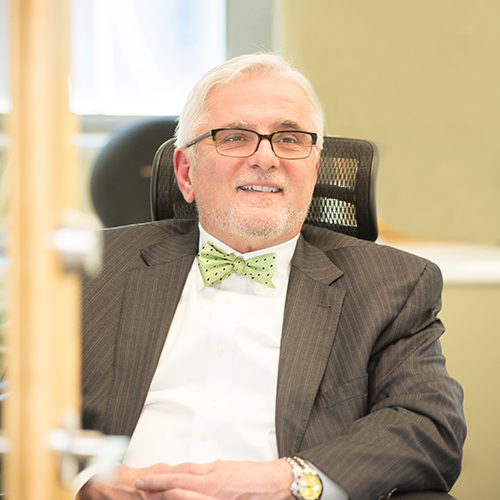
Scott Schermerhorn is Managing Partner and Chief Investment Officer at Granite Investment Advisors. He has over 30 years’ experience in the sector. He has been interviewed by CNBC’s Squawkbox, CBS News, Fox Business News, The Wall Street Journal,Investment News, Barron’s, Bloomberg, Yahoo Finance, The Fiscal Times and The Business Times. He is also an adjunct business professor at Boston University, from which he received a bachelor’s degree. He also holds an MBA from Seton Hall University.
In this 4,386 word interview, exclusively in the Wall Street Transcript, Mr. Schermerhorn details his analysis on many of this favorite stocks and some of the ones he wants investors to avoid, including Tesla:
“This market is buying into good stories without going into too much detail. How many times has Tesla (NASDAQ:TSLA) made promises that it failed to deliver on? Yet investors still get rewarded with a very rich multiple far greater than profitable auto companies.
Eventually, investors are going to tire of that. They are going to start valuing for what it really is, a challenged automotive company that’s burning cash…
Investors are betting they are going to disrupt the established business models. They may disrupt them a little on the margin.
However, it’s unlikely that they’re going to disrupt them to the degree that investors believe is going to happen. Given its lofty valuation, which is close to Ford’s (NYSE:F), will Tesla soon sell more cars than Ford or be more profitable? Unlikely.”
Mr. Schermerhorn also has advice on the macroeconomic cycle:
“Yes, we will go into another recession at some point in time; when this happens, no one knows. However, we don’t believe it’s going to be anywhere near as severe as the financial crisis.
The financial crisis was much worse than a typical recession. It ended up being a global depression, which is very, very, different. Recessions are normal in business cycles; depressions are not.
Many investors are expecting a repeat of 2008, which we don’t see in the cards because simply we are not seeing the wild speculation that you saw before the financial crisis.”
Read the entire 4,386 word interview to get the full detail on where Mr. Schermerhorn is directing his massive portfolio today, exclusively in the Wall Street Transcript.
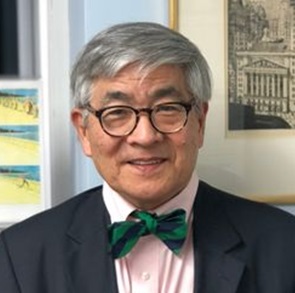
Graham Tanaka, CFA, is President of Tanaka Capital Management. He has over 45 years of experience as an analyst and portfolio manager and over 30 years’ experience managing mutual funds.
He is an engineering graduate of Brown University and received an MBA from Stanford University. He was a metals and mining, farm machinery, conglomerate, housing, building materials and real estate analyst at Morgan Guaranty — J.P. Morgan — and a technology and special situations analyst at Fiduciary Trust International.
He has made numerous appearances on CNBC, Bloomberg Television, Reuters Television and Yahoo Finance Live and has been quoted in The Wall Street Journal, Investor’s Business Daily, Businessweek, Fortune, Forbes and Moneymagazine. He is a member of the Electronics Analyst Group, a director of the Council for Economic Education and is the author of Digital Deflation — McGraw-Hill 2004.
In this 5,951 word interview, exclusively for the Wall Street Transcript, Mr. Tanaka details his analysis for many of his top portfolio holdings, including Tesla:
“In 2020, Tesla is going to come out with a compact version of their SUV. The current Model X is a large SUV; it’s a high-premium-value car with a high price at $90,000 and up.
The Model Y, which will be ramping next year, is going to become their midsize SUV, which today is the largest and fast-growing auto market segment in the world. That’s going to add a lot of demand for units.
And then, they’re going to come out with a pickup truck. We believe the Tesla pickup is going to be a premium-value, premium-price pickup that will have more features and functions that’ll blow away current pickup owners.
For electric vehicles, one of its biggest attributes is high torque. You can have instant acceleration. You don’t have to go through shifting gears at all. Just hit the accelerator, it takes off.
That is what pickup drivers want. They want high torque. They want to be able to pull a stump out of the ground.
They want to be able to haul a bunch of heavy stuff to the dump or pick up heavy items.
We believe that the demand for the pickup is going to be very high. And again, it’s already a high-margin product in the industry. Most of the profit pool for Detroit is SUVs and pickups.”
Read the complete 5,951 word interview for detailed explanations for this investment and more of Mr. Tanaka’s top picks, exclusively in the Wall Street Transcript.
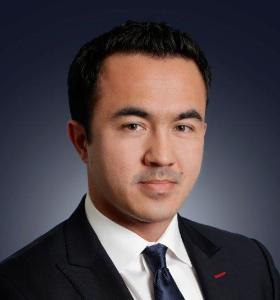
Mitch Steves is an Analyst at RBC Capital Markets primarily focused on networking equipment and semiconductor companies. In 2016 and 2017, he was noted as a “Rising Star of Wall Street Research” according to Institutional Investor magazine in three categories: Telecom & Networking Equipment, Semiconductors and IT Hardware/EMS.
He started at RBC in 2011 and launched coverage in 2015. Earlier, he held positions at Gleacher and Company covering hardware and networking equipment and worked as an investment banker at Cowen and Company.
He holds an economics degree from the University of California Berkeley.
In his 4,885 word interview, exclusively in the Wall Street Transcript, Mr. Steves clearly picks winners for the long term in the semiconductor sector:
“…If you look out, I mean, five, 10 years, there’s no real debate that you’re going to see a lot more spending on AI because it’s kind of an arms race. So whoever wins is going to have all the information to continue expanding their lead. It’s kind of a self-fulfilling prophecy.
But I’d say that the most obvious ones, at least near term, are going to be using AI for self-driving vehicles, using AI for ads as well, being able to figure out what type of ads to show people.
It’s going to be used for consumer purchases as well. So instead of you buying something on Amazon (NASDAQ:AMZN) — let’s say a GPU, for example — and then getting 20 different recommendations for the exact same thing, they’ll have better information in terms of what to sell you in the future.
I think those are two of the most near-term ones, advertising and then secondly self-driving vehicles in the next couple of years.”
His specific recommendations include the bellwethers of the industry:
…I’ll agree and say, “OK, the performance is probably the same, but that doesn’t matter because if your performance is the same, but it cost me tens of millions of dollars more in power consumption because your chip is just consuming too much power, then it doesn’t matter what your performance is.”
You can quite literally give away the Intel chip for free and compare it to an AMD chip, and nobody’s going to take the Intel chip because it just loses that much money over a year. I think that’s where we’re going, and note that Intel could catch up, but as we stand today, we think AMD gains share due to that math.
We’re going to more of an efficient frontier as well in semiconductors. You can’t just be the high-performance, high-power-consumption company.
You have to be essentially high performance plus low power consumption. This favors GPUs, FPGAs and companies on the smallest nodes.”
Get the specific stock recommendations and more of his sector analysis in the complete 4,885 word interview, exclusively in the Wall Street Transcript.
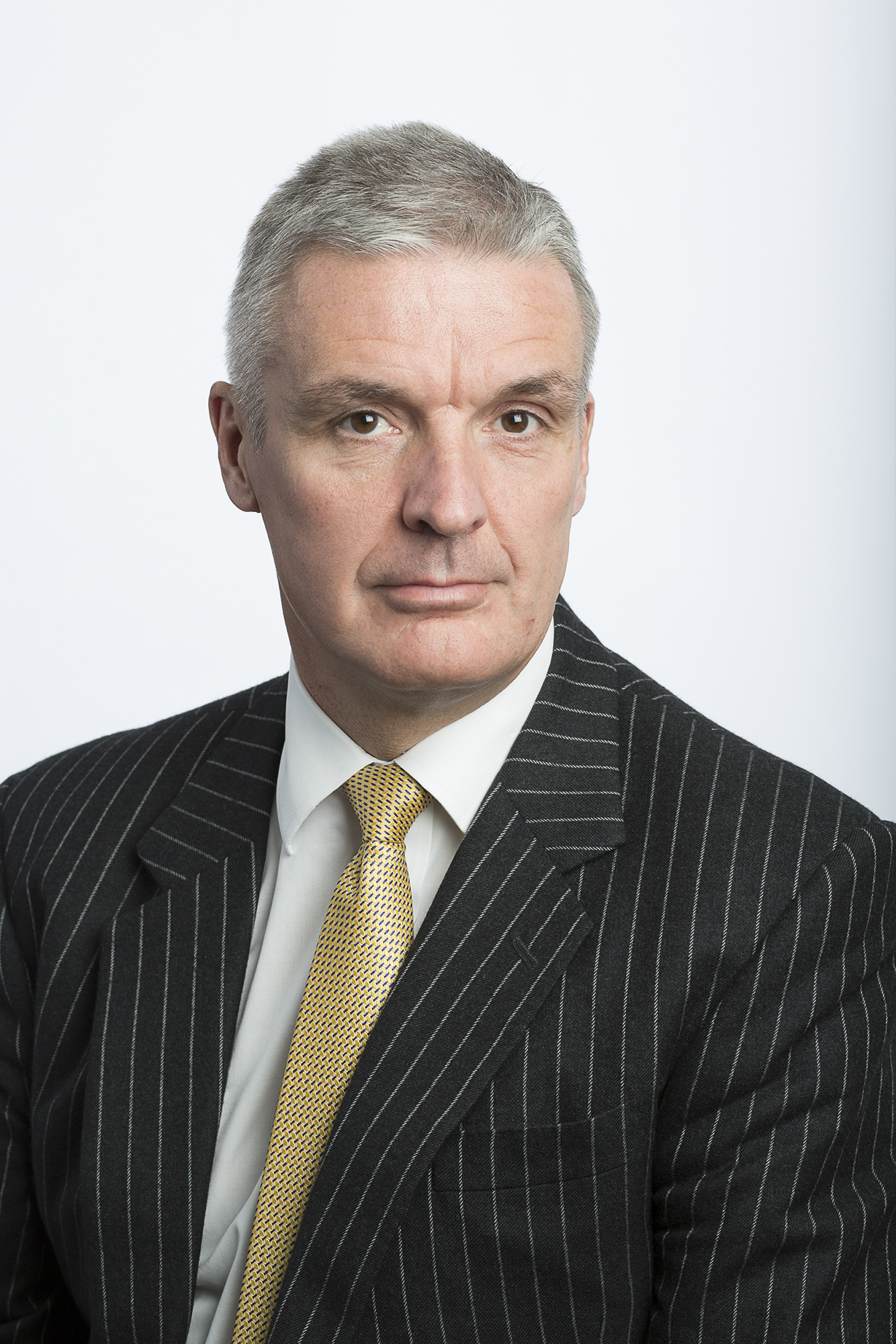
Tony Cousins, CFA, is Chief Executive and Chief Investment Officer of Pyrford International Ltd., BMO Global Asset Management. Prior to serving as Chief Executive and Chief Investment Officer, Mr. Cousins headed, since 1989, Pyrford’s European and U.K. investment management activities.
He was promoted to Joint Chief Investment Officer in 2009 and then further promoted to his current role in 2011. Previously, Mr. Cousins was an equity portfolio manager at Daiwa International Capital Management in London.
Mr. Cousins graduated from Cambridge University in 1985 with a Bachelor of Arts and obtained his Master of Arts and became a CFA charterholder in 1990.
in his 4,009 word interview, exclusively in the Wall Street Transcript, Mr. Cousins details how to build a high return portfolio in this current market:
“We are saying that a slowdown is coming. A lot of recent growth, particularly in the U.S. economy, has been driven by one-off factors, as in the tax cuts and very, very easy monetary policy.
Just stopping QE — quantitative easing — amounts to a policy tightening, even if Powell has now clearly taken his foot off the brake in terms of ending quantitative tightening and normalizing the yield curve.
The effects of the tax cuts in the U.S. are transitory and dropping off. We can see the economy is clearly slowing. That is something to be concerned about.”
The implications for current investors is clear to Mr. Cousins:
“They should be very cautious and stick to quality. Quality, from my point of view, involves investing in very defensive business models that have moats, such as high barriers to entry and low threats of substitution.
Key characteristics in our portfolio are companies with high dividend yields and high returns on equity paired with particularly strong balance sheets. ”
Mr. Cousins has words of caution for those looking to invest in the Italian equity market:
“The worst of all is the Italian banking system that has 14% of assets as effectively nonperforming. That is, it is using a fairly generous definition of what constitutes an NPL.
When we actually have had some growth and better economic conditions, there was an opportunity to try and deal with the structural weaknesses of the European banking system. It didn’t happen. That has been a great shame.
If we are now entering a downturn, and certainly the leading indicators for Europe are pointing down and actually reported growth is quite poor, then this sector is really in no condition to face that sort of worsening environment.
The tier-1 capital ratios that are being published are just not accurate. They are a great work of fiction. If these banks truly had enough capital, they would be paying dividends, and many of them are not.
So that’s one area that we are totally avoiding.
The other areas are peripheral Southern Europe — Greece, Portugal, Italy and Spain. The euro has been a disaster for these areas.
Italy has seen no GDP growth in real terms for 15 years, largely because it has not had the ability, as it had in pre-euro times, to depreciate its currency to restore competitiveness. So the euro has been a disaster.
Ten years ago, Italy had lower unemployment than Germany. It now has much, much higher unemployment. Youth unemployment is one in three.
It looks like it is coming down a bit because the young Italians are simply leaving the country to try and find opportunities elsewhere. That is a source of the populism rising in Italy, which is putting Italy on a collision course with the EU.
They will be strengthened in the European elections. Italy simply has had enough because they cannot use monetary policy and have a one-size-fits-all interest rate set by the ECB.
They want to loosen the fiscal austerity that has been applied to them. That puts them on this collision course with Brussels. You have political leadership that is prepared now to have that confrontation.
You should look for some quite stormy times through the rest of 2019 in that relationship that will be seen in the widening of Italian bond yield spreads versus the core of Germany. That will put immense pressure on the banking sector in Italy and the Italian market in general.
We all know what happened to Greece. Greece was brought into line because it was very small and could be bullied. Italy is a much, much larger economy. It has the third-largest bond market in the world, and it won’t be bullied into submission as Greece was several years ago.
So that is one area in particular to avoid. It is going to be a source of a lot of volatility in European equity markets.”
Read the complete 4,009 word interview to get the complete portfolio picture from Tony Cousins, and where he is putting his money now, exclusively in the Wall Street Transcript.
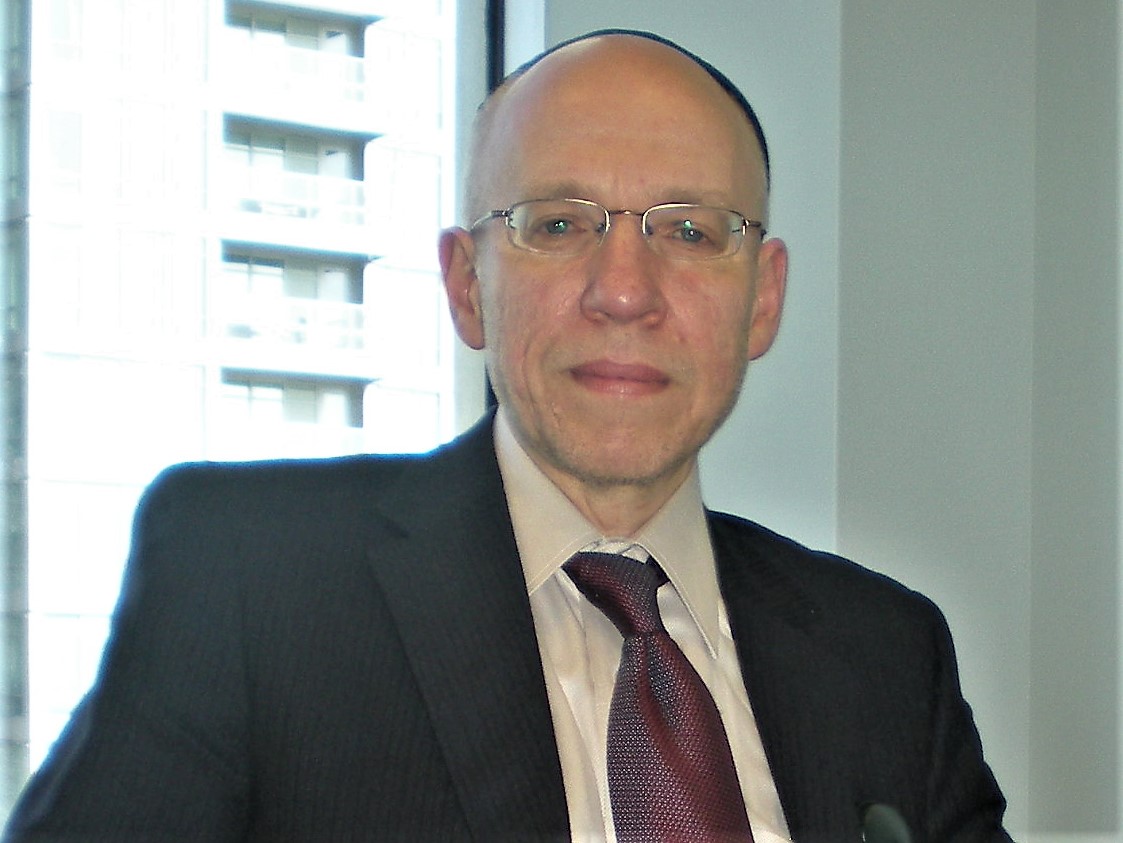
Sam Wiseman, M.A., CFA, is the Chief Investment Officer of Wise Capital Management Inc. He has 40 years of comprehensive industry experience. He has been a portfolio manager since 1990, having previously been a Vice President, Equities at Bolton Tremblay and a Portfolio Manager at OMERS. Mr. Wiseman is also a member of the CFA Practice Analysis Working Body Committee.
In his 2,492 word interview, exclusively in the Wall Street Transcript, Mr. Wiseman reveals a detailed small cap portfolio development protocol developed at his firm:
“…What we find worldwide, as markets have become more mature and there’s been more regulation, is that small cap has been the highest-performing asset class.
It has shown historical outperformance of 2% to 3% over general equities, and it will continue to do so over five-year periods because the inefficiency is in fact getting greater, not less, as are most other inefficiencies.”
Within the small cap universe, some global winners are apparent:
“…We have a very large weighting for the United Kingdom, which is structurally doing very well, and it uses technology in some cases, like the financial sector, even more than the United States and Canada, much more.”
Then the portfolio finds some great valuations in the midst of market volatility:
“…It’ll show us, for example, a sector that will be out of favor, let’s say, health care or consumer stocks, which are very much out of favor as a theme, but then we’ll purposely go to those stocks and closely examine to find names that were thrown out, that is a baby-thrown-out-with-the-bathwater type of thing.
So that people are rotating out of the sector, but there are still some stocks that are gems there, which might get misclassified. And we’ll find some excellent underpriced stocks.”
Get the complete portfolio from the exclusive 2,492 word interview with Sam Wiseman, exclusively in the Wall Street Transcript.
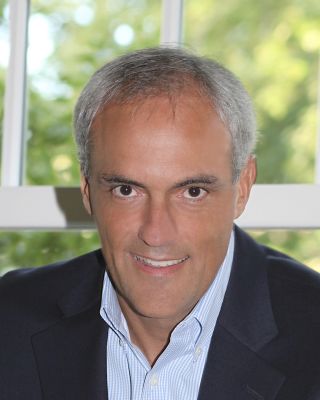
Scott Wallace, CFA, is Founder and Chief Investment Officer of Shorepath Capital Management LLC. Mr. Wallace joined AllianceBernstein as a U.S. Large Cap Growth Portfolio Manager in 2001 and became U.S. Large Cap Growth Team Leader on March 31, 2010.
Mr. Wallace also was a partner and member of the senior leadership team at AllianceBernstein charged with managing and setting strategy for the firm. Prior to joining AllianceBernstein, he was with JPMorgan for 15 years, where he was a managing director and held a variety of roles in the U.S. and abroad, most recently as head of equities in Japan.
Mr. Wallace has a B.A., magna cum laude, from Princeton University.
In this exclusive 3,391 word interview with the Wall Street Transcript, Mr. Wallace details his current outlook for investors and his unique approach to creating above market returns:
“So Shorepath is a couple of things, all in the pursuit of one goal. And that goal is compounding our clients’ money at superior rates of return over long periods of time in a tax-effective manner.
The goal of this whole exercise is to leave people better off after having entrusted their money to us. And what we’re less concerned about is short-term performance, although you can’t ignore it totally. But long-term performance and long-term generation of capital appreciation is our goal.
And as a result of having that as our singular focus, we implement it in a certain way.
First, we believe that people like to have a relatively concentrated portfolio. So we don’t own that many names, typically around 20…”
One example of this unique approach is a relatively new portfolio position:
“…One of the ones that’s interesting and we’ve added some recently to is Schlumberger (NYSE:SLB). And this is one of the things that’s interesting in this whole move.
Schlumberger is really one of the best-managed oil service companies out there. But today, the stock has gotten so cheap that its dividend yield exceeds by a good margin its corporate bond yield.”
Get the full detail on this and many of Mr. Wallace’s other interesting investments in the complete 3,391 word interview, only in the Wall Street Transcript.
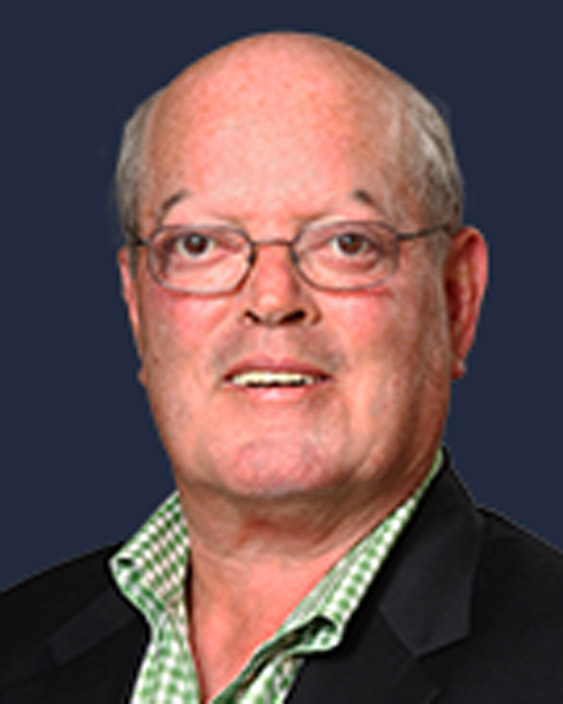
Jonathan S. Raclin, a Principal of Barrington Asset Management, Inc., has been Managing Director of the Enterprise Portfolio. Mr. Raclin graduated with a B.A. from St. Lawrence University and an M.A. from Northwestern University.
Following service as a Commissioned Officer, United States Marine Corps, Mr. Raclin was associated with White, Weld & Co. as a Partner of William Blair & Company, L.L.C., and as Executive Vice President for Capital Markets with The Chicago Corporation. He is a former Regional Chairman of The National Association of Securities Dealers, a former President of the Bond Club of Chicago and of the Attic Club.
He previously served as a director of the St. Simon’s Land Trust, and has been President of the Coastal Georgia Historical Society and Co-Chairman of Emmi Solutions, LLC, a privately held health care information company.
In this exclusive 1,976 word interview in the Wall Street Transcript, Mr. Raclin gives some important advice to investors in the current market.
“We emphasize closed-ended mutual funds for three reasons. The first is diversification; I have little confidence in anybody’s ability to consistently and correctly identify excellent investments.
I like the idea of mutual funds because of the obvious diversification from at least 100 positions in the portfolio…
The second reason I use closed-ended funds is I have little confidence in anybody’s ability to consistently and correctly evaluate valuation levels…”
The economic foresight of Mr. Raclin is honed by decades of experience:
“I believe that the two largest long-term risks to the stock market are, first, the amount of federal debt, $22 trillion with an average life of five years, which means an enormous amount of rollover every year growing at $1 trillion a year based on the projected deficit.
And the second is the entire area of cybersecurity. This incredibly complex technology is critical to almost everybody. When the lights go off, when the computers go dark, need I say more?”
Current IPOs are not investable for Mr. Raclin:
“Items for concern are valuations for some of these overly hyped IPOs. For example, the recent public offering of the company Lyft (NASDAQ:LYFT), from $45 to $88, now trading at $54.
Or Uber (NYSE:UBER), which reported $3 billion in revenues for the quarter and lost $1 billion. My clients would have a heart attack if I owned those kinds of things.”
Get the full detail by reading the entire exclusive 1,976 word interview, only in the Wall Street Transcript.